Bangladesh court scraps job quotas after deadly unrest
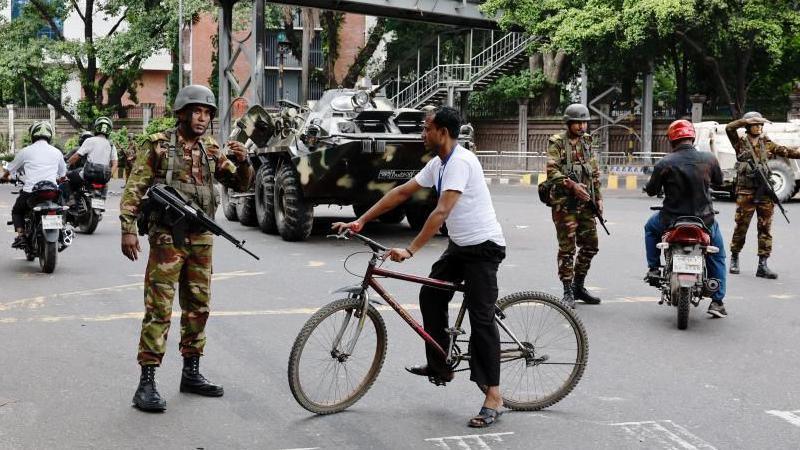
There is a heavy armed police presence in the capital Dhaka after days of clashes
- Published
Bangladesh's top court has scrapped most of the quotas on government jobs that had sparked violent clashes across the country that have killed more than 100 people.
A third of public sector jobs had been reserved for the relatives of veterans from the country’s war for independence from Pakistan in 1971.
But now the court has ruled just 5% of the roles can be reserved for veterans' relatives.
Law Minister Anisul Huq said the government would implement the ruling within days. Some student leaders have vowed to continue protesting.
Speaking to the BBC, Mr Huq also denied that Prime Minister Sheikh Hasina - who has been in power since 2009 - was losing her grip on Bangladesh.
"In that case you would have seen the mass population of the country to revolt. They have actually supported the government in this turmoil and they have said yes, the government should act to bring the violence to an end," he said.
He blamed opposition forces for joining the protests and destroying "the symbols of Bangladesh's development".
Several protest movement coordinators have told the BBC that action would continue until the government took action.
“We applaud the court's verdict," said one coordinator, Nusrat Tabassum. "But our main demand is with the executive department. Until those demands are implemented, the ongoing nationwide complete shutdown program will continue.”
The students' demands also include justice for protesters killed in recent days, the release of detained protest leaders, the restoration of internet services and resignations of government ministers.
Streets in the capital Dhaka are deserted as a second day of curfew is in force, but sporadic clashes continued even after the supreme court ruling.
About 115 people are known to have died but local media report a much higher casualty figure. At least 50 people were killed on Friday alone.
The Supreme Court ruling orders that 93% of public sector jobs should be recruited on merit, leaving 5% for the family members of the veterans of the country's independence war.
A remaining 2% is reserved for people from ethnic minorities or with disabilities.
Scrapped in 2018 by Ms Hasina’s government, the quota system was reinstated by a lower court last month, sparking the protests.
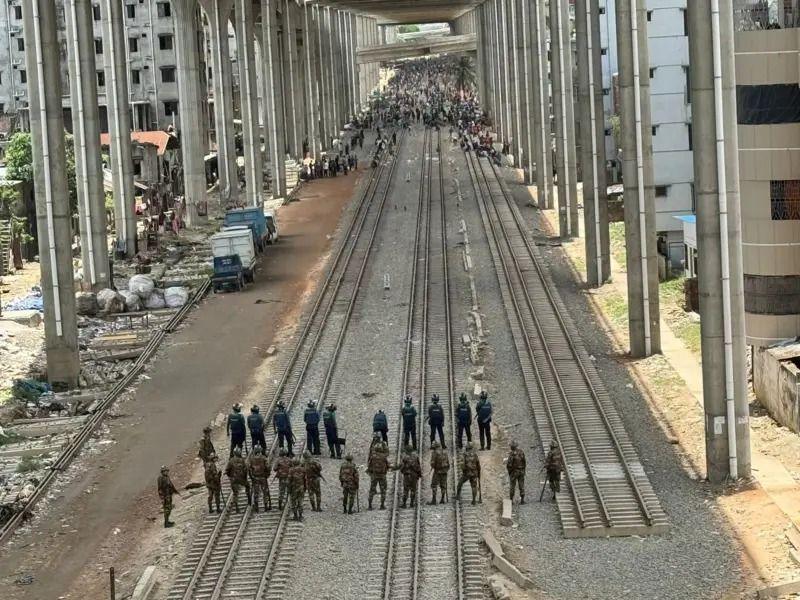
Sporadic clashes were reported in some areas on Sunday
The government responded with a harsh crackdown, including a curfew and a communications blackout.
Protest coordinators say police and the student wing of the governing Awami League – known as the Bangladesh Chhatra League – have been using brutal force against peaceful demonstrators. The government denies this.
Many people have been detained by the authorities.
Nahid Islam, a coordinators of the quota reform movement, alleged that he had been subjected to physical and mental torture.
He told the BBC he had been picked up by people who said they were detectives, handcuffed and transferred to a private car.
“After some time I was taken out of the car and taken to a room in a house. I was interrogated and subsequently subjected to torture. At one point I fainted. After that I have no memory," Mr Islam said.
He says he regained consciousness on the street in an area of Dhaka in the early hours of Sunday morning. "I still have blood clots on both shoulders and left leg," he said.
The police have not commented.
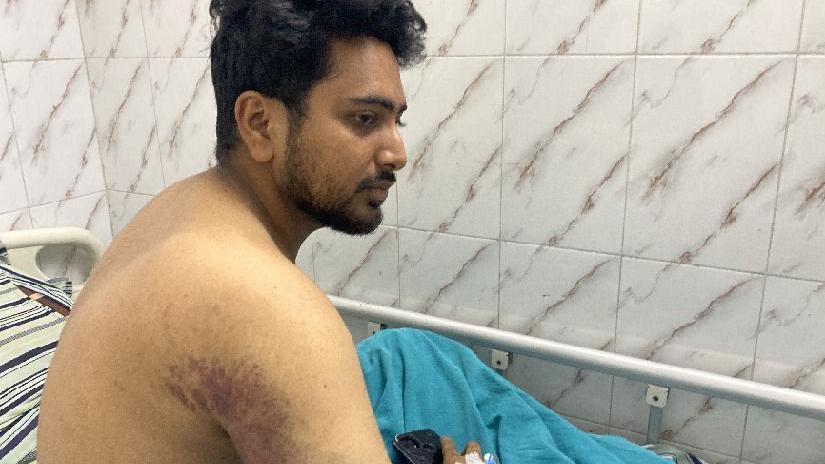
Mr Islam says he was tortured by police who dumped on the street while he was unconscious
The unrest has also seen arson attacks on government buildings, police check posts and the capital's metro system, which the interior minister said had been left inoperable. Burnt out vehicles can be seen in most Dhaka neighbourhoods.
Clashes have been reported in other parts of the country. More than 800 prisoners escaped from a prison near Dhaka with 85 weapons and 10,000 ammunition rounds. Police say they have so far recaptured 58 of the prisoners.
UK-based analyst Kamal Ahmed told the BBC that the re-introduced job quota system had been exploited by the ruling Awami League party.
“The quota system was nothing but the governing Awami League rewarding their supporters and a ploy for entrenching the party’s influence in the future administration,” he said.
The ensuing protests were of "unprecedented intensity" and have expanded to become a "much wider people’s movement” against a backdrop of allegations of corruption, lack of accountability and the escalating cost of living, he said.
Law Minister Anisul Huq denied the quota system was benefiting the Awami League.
"I would say that actually 95% of the members of the ruling party have been either freedom fighters or have been supporters of the freedom fighters. It’s quite natural that they would be benefitting out of it,” he told the BBC.
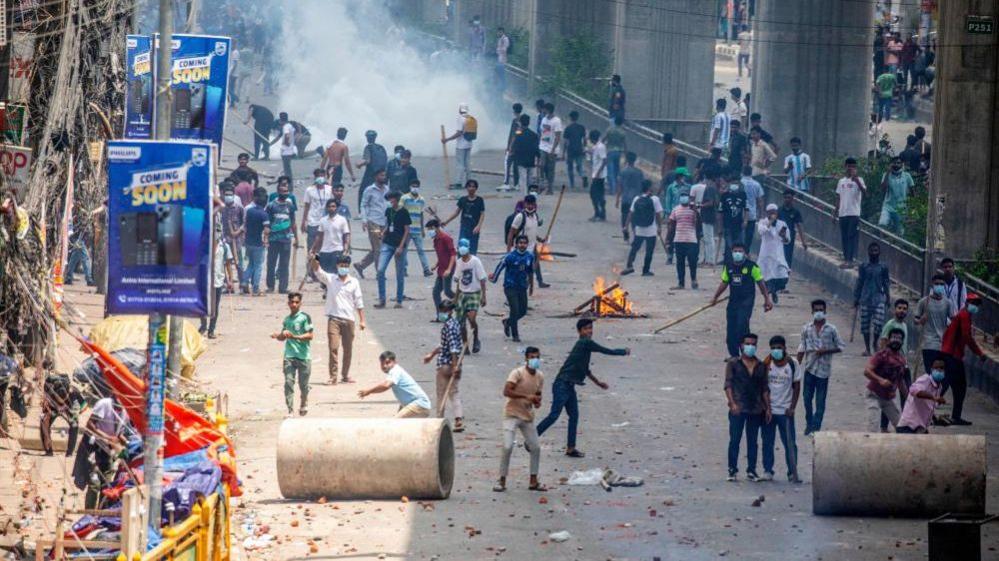
Violent clashes on Thursday and Friday saw more than 50 people killed
Bangladesh is one of the fastest growing economies in the world, but that growth has not translated into jobs for university graduates.
Estimates suggest that around 18 million young Bangladeshis are looking for jobs. University graduates face higher rates of unemployment than their less-educated peers.
Clashes and demonstrations in UK and US
The tensions in Bangladesh have also seen demonstrations take place outside the country.
In the US there was a demonstration outside the White House, mainly involving Bangladeshi students studying in the country. In Times Square in New York, participants displayed banners demanding justice for the students killed over the past few days.
There were also disturbances in east London on Thursday evening as pro- and anti-government groups clashed.
Police said, external they found two large groups of men fighting among a wider demonstration of several hundred people in Whitechapel, which has a large ethnic Bangladeshi population.
Objects were then thrown at police, injuring two, and cars were damaged.
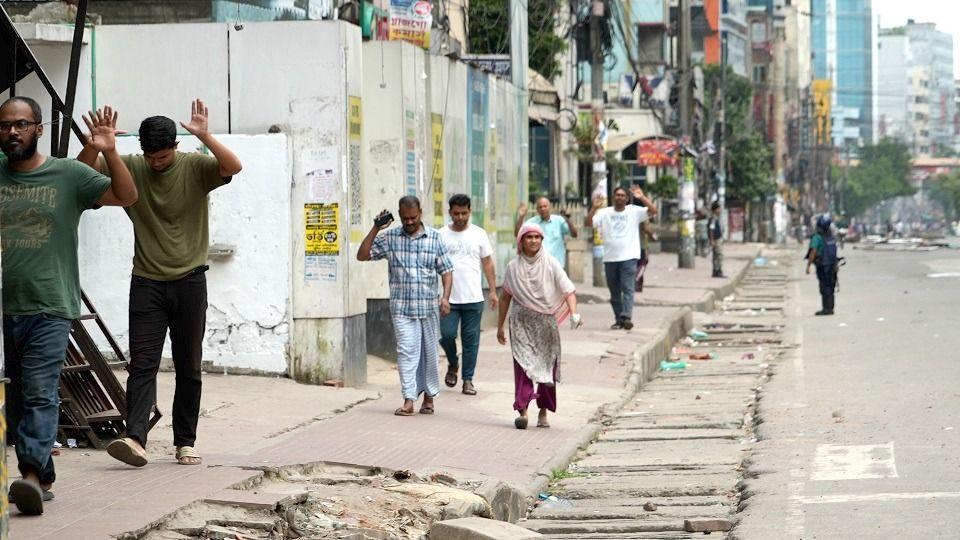
The Bangladeshi authorities have imposed a curfew
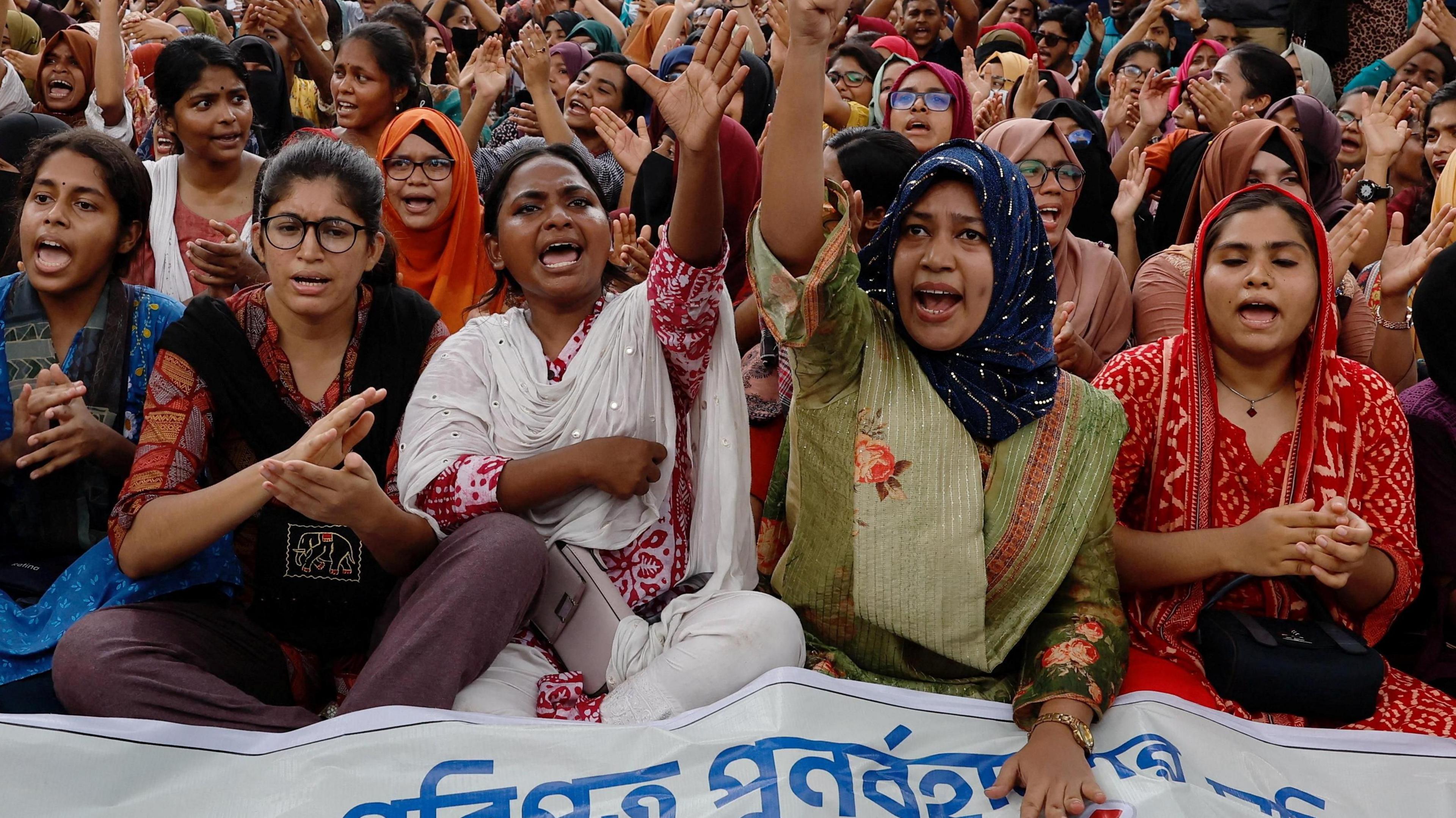
Students and jobseekers have been demanding the quotas be replaced by a merit-based system